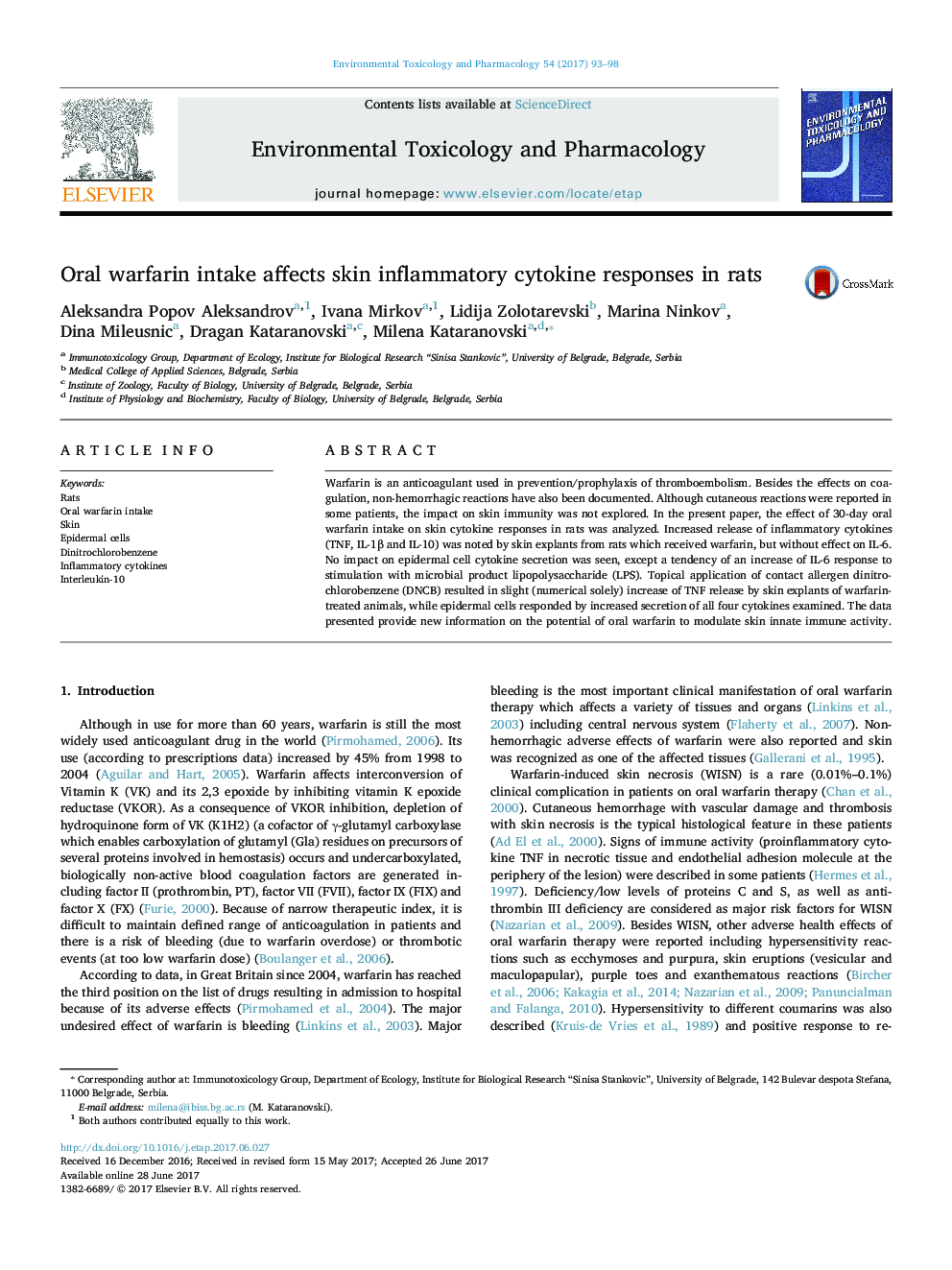| Article ID | Journal | Published Year | Pages | File Type |
|---|---|---|---|---|
| 5559743 | Environmental Toxicology and Pharmacology | 2017 | 6 Pages |
â¢Effect of oral warfarin intake on skin cytokine responses was examined in rats.â¢Increased skin explant's TNF and IL-1β release was noted in warfarin-treated rats.â¢Warfarin primed epidermal cell cytokine responses to contact allergen DNCB.â¢These effects of warfarin might increase skin sensitivity to adverse reactions.
Warfarin is an anticoagulant used in prevention/prophylaxis of thromboembolism. Besides the effects on coagulation, non-hemorrhagic reactions have also been documented. Although cutaneous reactions were reported in some patients, the impact on skin immunity was not explored. In the present paper, the effect of 30-day oral warfarin intake on skin cytokine responses in rats was analyzed. Increased release of inflammatory cytokines (TNF, IL-1β and IL-10) was noted by skin explants from rats which received warfarin, but without effect on IL-6. No impact on epidermal cell cytokine secretion was seen, except a tendency of an increase of IL-6 response to stimulation with microbial product lipopolysaccharide (LPS). Topical application of contact allergen dinitrochlorobenzene (DNCB) resulted in slight (numerical solely) increase of TNF release by skin explants of warfarin-treated animals, while epidermal cells responded by increased secretion of all four cytokines examined. The data presented provide new information on the potential of oral warfarin to modulate skin innate immune activity.
